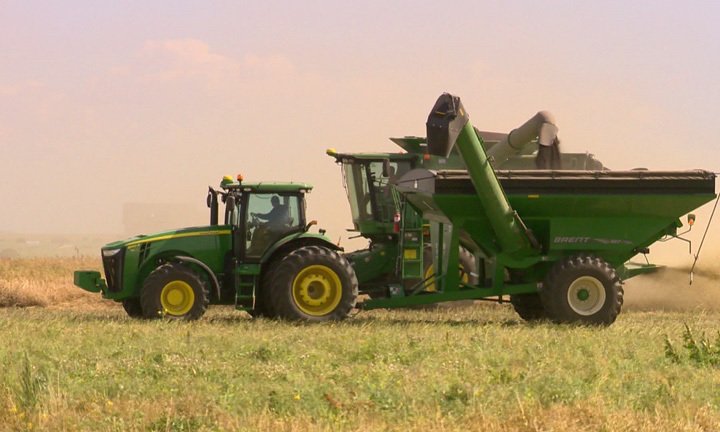After one of the worst droughts in provincial history, farmers are asking the Manitoba government to lend a helping hand for the future.

The Conservatives are looking over a number of recommendations from Keystone Agricultural Producers (KAP) that President Bill Campbell says is going to help farmers rebound from the 2021 drought.
Keystone Agricultural Producers is Manitoba’s largest farm lobby group representing farmers in 12 districts across the province.
Campbell says it’s about working together to create a roadmap to success over the next several years.
Among the six recommendations in the proposal, KAP wants the province to remove more education property taxes from farming property to “ensure a stable and competitive tax environment in the year ahead.”
Campbell says the government should increase funding to build climate resiliency and reduce greenhouse gas emissions. KAP is asking the government to work with the federal government to “find a solution regarding carbon pricing in Manitoba.”

Get breaking National news
A core component of that request is any plan must “exempt fuel used for drying grain and heating barns” with the promise that all tax revenue “earned from agricultural activities” be given back to the industry.”
Carbon pricing is not a new issue to the Manitoba government, with Premier Heather Stefanson saying she wants to work on a plan that could shift the emphasis slightly away from income-tax rebates toward spending more on green-energy projects.
The federal government’s carbon plan set prices per tonne rising to $170 by 2030. Manitoba wasn’t alone when it opposed the entire proposal. Former premier Brian Pallister said he’d come up with a plan made by and for Manitobans.
Pallister even took the Liberals to Federal to fight the carbon plan, but lost and now Stefanson says she wants to negotiate with Prime Minister Justin Trudeau.
While the province comes up with a plan to go green, farmers are looking to the future and to the skies.
Farmers are hoping for a heavy snowfall this Winter to replenish dugouts, subsoil and other water sources but “it takes a lot of snow to make water, and we’re still going to need timely rains in the Spring and throughout the growing season,” says Campbell.”
Campbell says while he’s hoping to government steps up to help farmers, Mother Nature always plays the final card, no matter how well prepared producers are.










Comments